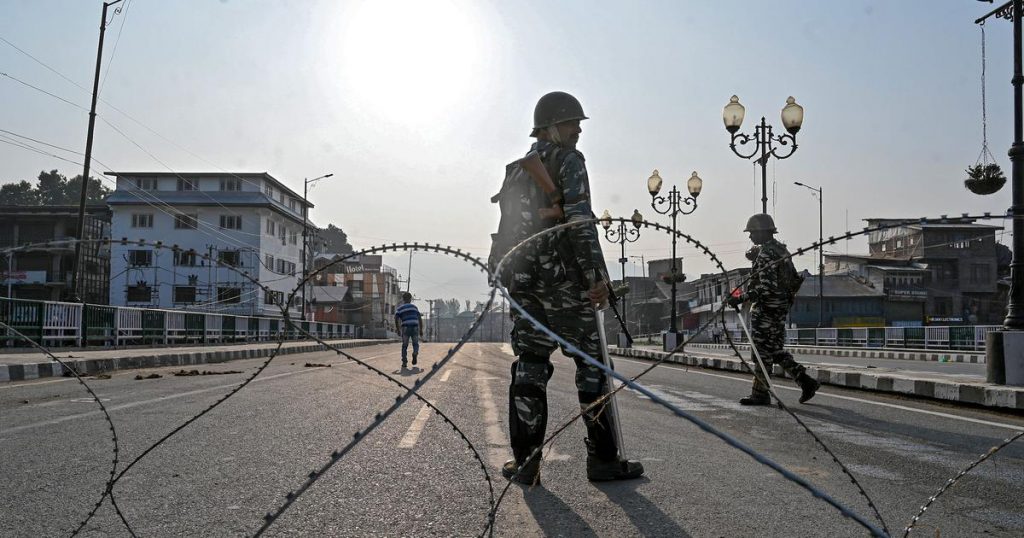The arrest of Davinder Singh, a DSP with Jammu and Kashmir Police, on suspected terror links is a strange case. Davinder had, in 2004, been named by Afzal Guru, who was convicted in the Parliament attack of 2001 and hanged to death. Afzal said Davinder had tortured him in the police camp and later got him to make arrangements for the accommodation of a person in Delhi. This person later emerged to be one of the Parliament attackers and was killed in the operation. Davinder was arrested earlier this month while trying to ferry two Hizb-ul-Mujahideen militants out of the country. It is said that he had met foreign diplomats as recently as last week when the Modi government had sent a bunch of them to see the ‘normal’ situation prevailing in J&K. Although Davinder has a chequered past, he might have been helpful to the government for some time and could have fallen out of grace for reasons unknown commonly. Whether he had been under police surveillance for some time, as claimed by the investigators, is also unknown. Such cases may be spotted few and far between but the kind of suspicions they raise about the security forces is immensely damaging. If Davinder is anything to go by as an indicator towards security preparedness in J&K, then this whole nation is in grave danger. Traitors, it seems, abound.
Going by reports, Davinder even took Rs12 lakh from the militants to arrange for the transport. This could be an unverified claim by the Indian government, in its usual style, to defame Davinder as a corrupt man and simplify the incident. The story may be dangerously different. It may not be corruption but a sinister collusion of anti-national forces. If that angle is considered, then Davinder’s religion also has to be taken into account. He is not a Moslem. The Sikhs, as a race, have always been extrovertly pro-India. Initially it was reported that the DSP had been awarded with a President’s medal, which the J&K police has now refuted. The police, however, admitted that Davinder was bestowed with a gallantry award by the state police for his role in countering a suicide attack at Pulwama in 2017. This history of the policeman could indicate that the National Investigation Agency (NIA) may be covering up its own tracks for mistakes its officers could have committed down the line. It is easy to make surmises but extremely difficult to unearth the truth in such cloak-dagger spy stories. This is one part of the story. There could be many other angles but a simple yet different narrative could prove dangerous for the country.
Davinder is a Sikh.
Not so long ago, in the 1980s, a part of the Sikh community inside and outside India was upset with the Indian government. The killing of Jarnail Singh Bhindranwale and the entry of Indian Army tanks into the golden temple at Amritsar peaked the situation. The result was the murder of the then Prime Minister Indira Gandhi at the hands of two Sikh bodyguards. We have to observe that recently, when the Canadian Prime Minister Justin Trudeau came visiting India, the Modi government was unwilling to give him basic treatment due to a head of state of such an important country like Canada. The cold shoulder meted out to Trudeau was because he was perceived as being supportive of the pro-Khalistan movement that has been reorganizing abroad in the recent past. With the abrogation of Article 370 in J&K, minorities across the country feel insecure. It is unwise to think that a police-military action could have ended an emotional upheaval such as the Khalistan movement. Davinder may not be corrupt but he may be the tip of an iceberg of immense proportions holding together people of various beliefs within India but highly inimical to the forces that are talking of nationalism and Hindutva these days. What is also surprising is if this man was named by Afzal Guru to have been connected to the Parliament attack, how come the government of the day permitted him to not only stay on in the service of the state police but also gave him the gallantry award and the opportunity to interact with foreign diplomats so very recently. Was he truly under watch by the NIA? Very unlikely.
Davinder’s case should wisen this country that danger lies within, not in some country beyond our borders.

